Trump says not to fear Covid-19. Do Americans agree?
- Published
Four Covid rules broken by Trump and the White House
After three nights in hospital for Covid treatment, US President Donald Trump is back in the White House - and back on Twitter.
In a video posted on Monday shortly after his return, the president implored Americans not to let the virus "dominate" their lives. "Don't be afraid of it. You're going to beat it," he said. "Don't let it take over your lives. Don't let that happen."
But with nearly 7.5 million Covid-19 cases and more than 210,000 deaths nationwide, is this a message of strength or an insult to those still suffering? We ask voters.

'A winning spirit'
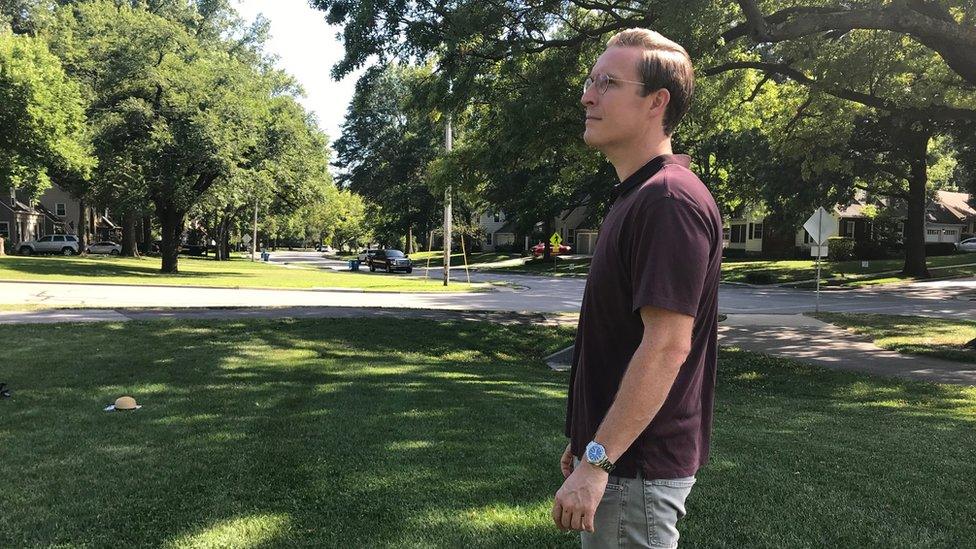
Neil Melton, a construction-project manager who lives in Prairie Village, Kansas, says he appreciates the way Mr Trump has been candid about his experience with the virus. "He's trying to be one-on-one with the American people, and he's trying to show: 'Hey, I'm just like you'", says Mr Melton.
He likes to see the president project strength - such when he walked to the top of a White House staircase and stood at a balcony and took off his mask. "People want to see that winning spirit," says Mr Melton. "They don't want to live with this Covid lifestyle forever." Mr Melton adds: "He wants to show some symbolism: 'Hey, we can come out of this.'"

'A danger to our community'
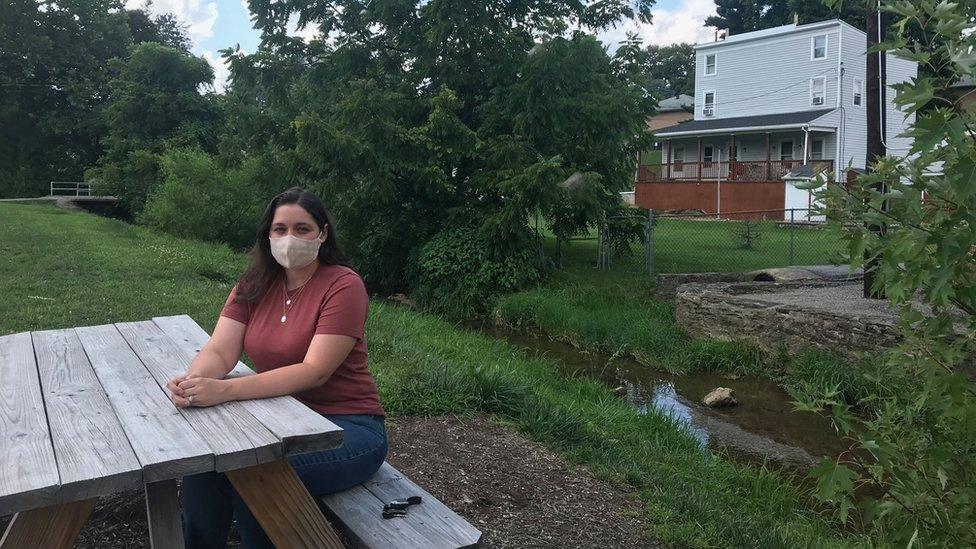
Stevie Storck of Windsor, Pennsylvania, disagrees. "After three days, he was saying: 'You don't need to be afraid of it,'" she says. "The misinformation he spread about the virus is a big danger to our community. He's just furthering that attitude of not taking it seriously."
Ms Storck says she lives on a block with Trump signs ("Make Liberals Cry Again"), and people in her community do not always follow public health guidelines.
Neighbours are sometimes cavalier about wearing masks in the post office and in shops, she says, and she is concerned they will be emboldened by the president's actions.

'Get over it'
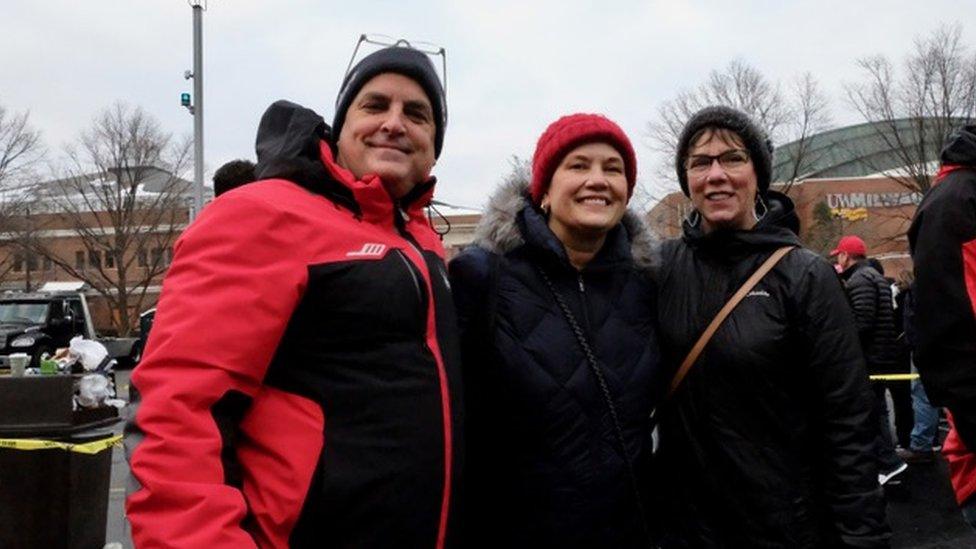
Chris Charapata (right) at a January Trump rally in Milwaukee, Wisconsin
Chris Charapata, 58, is a small business owner from Wind Lake, Wisconsin. One of her last pre-pandemic events was a January Trump rally in Milwaukee. Ms Charapata's support for the president has stayed strong since. Her response to the president's coronavirus diagnosis? "Oh well."
"If you go out and live your life, anything could happen," she says. "I can see that Joe Biden is not out there living his life."
Ms Charapata is sympathetic toward those who are infected - her own sister became very ill with the virus and has since recovered. But the outbreak shouldn't be reason to shut down the country, she says. "I totally agree with the president. All the other plagues, and all the other pandemics we've had did not stop the world."
She continues: "I understood flattening the curve, but that was months ago, get over it."

'Life does not stop because of risks'
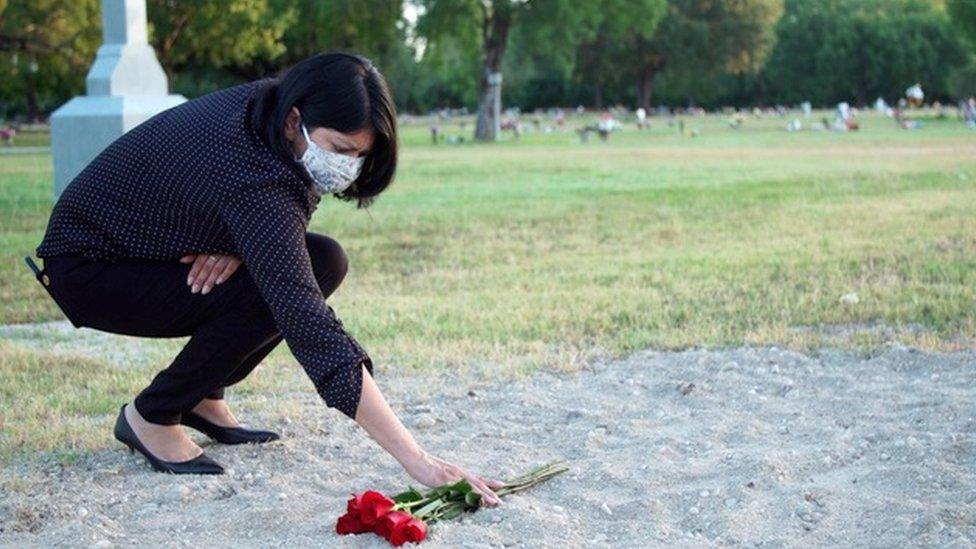
Monica Muñoz first spoke to BBC this summer after losing both her father and grandfather to Covid-19. Yet the Texan had a surprising reaction to Mr Trump's words.
"I spend a lot of time reflecting on my family's experience with the virus," she says. "I agree with President Trump that we cannot be afraid of Covid-19. Life does not stop because of risks."
"We know more about the virus now than we did in the past several months. We have a personal responsibility to take necessary precautions to care for ourselves and protect others," she adds. "We have to continuously inform ourselves about the virus. My dad would always say 'Nimodo, la vida sigue' (Oh well, life goes on)."

The president was 'showing his love'
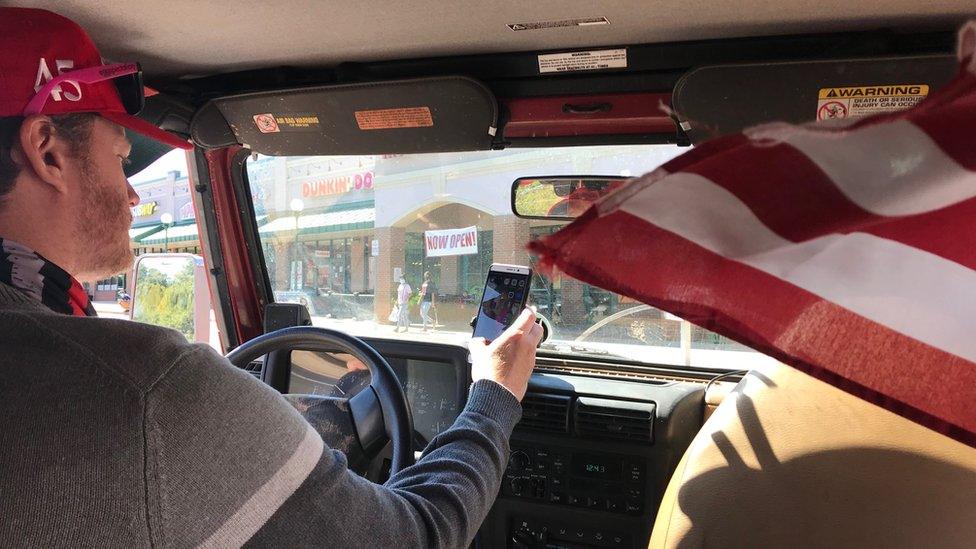
Scott Pio, a 36-year-old software engineer who lives in Loudoun County, Virginia, was one of those who gathered outside of Walter Reed National Military Medical Center in Bethesda, Maryland, to show their support for the president over the weekend.
Mr Pio applauded the president's decision to go for a drive while there, and does not think it was a risky move. The president, he says, ventured outside of the gates of the military hospital because he wanted "to show his supporters love for being out there."
"He wouldn't have done it if he didn't really care about the people who are supporting him."

'Ridiculous defiance'
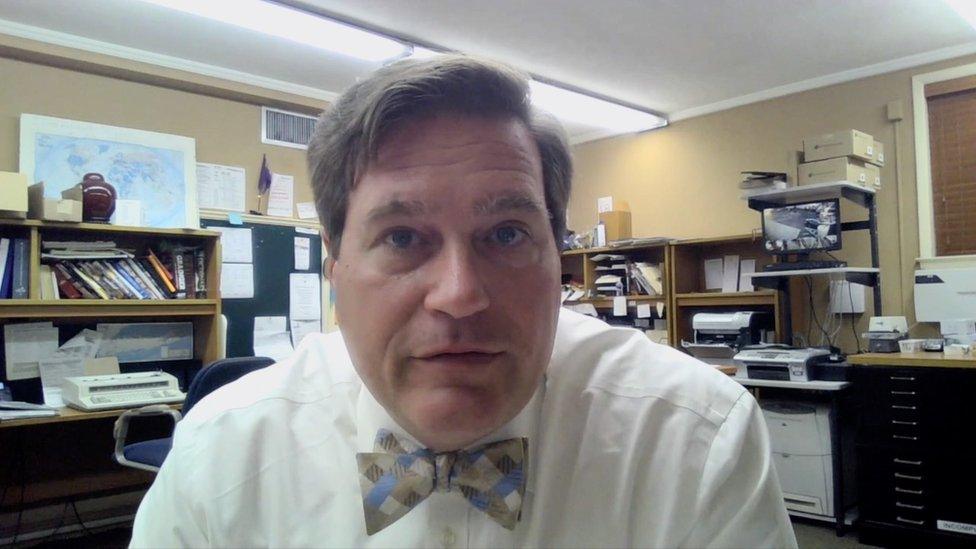
Paul Kearns-Stanley, a funeral director from Queens, New York, says he was angry, but not surprised by President Trump's message not to let Covid-19 "dominate your life". Mr Kearns-Stanley has arranged countless funerals for victims of the virus and worked with families who lost both parents to the disease. He considers the president's minimising of the pandemic reckless.
"People hear that message and they act on it, and it's our behaviour that's going to help us or hurt us now," Mr Kearns-Stanley says. While frustrated with the president's "ridiculous defiance" of public health guidelines, he doesn't expect Trump's illness to change his actions. "That would be like asking a tiger to change his stripes."
"It's so disturbing... 200,000 deaths is too many": Three funeral directors reflect on the milestone